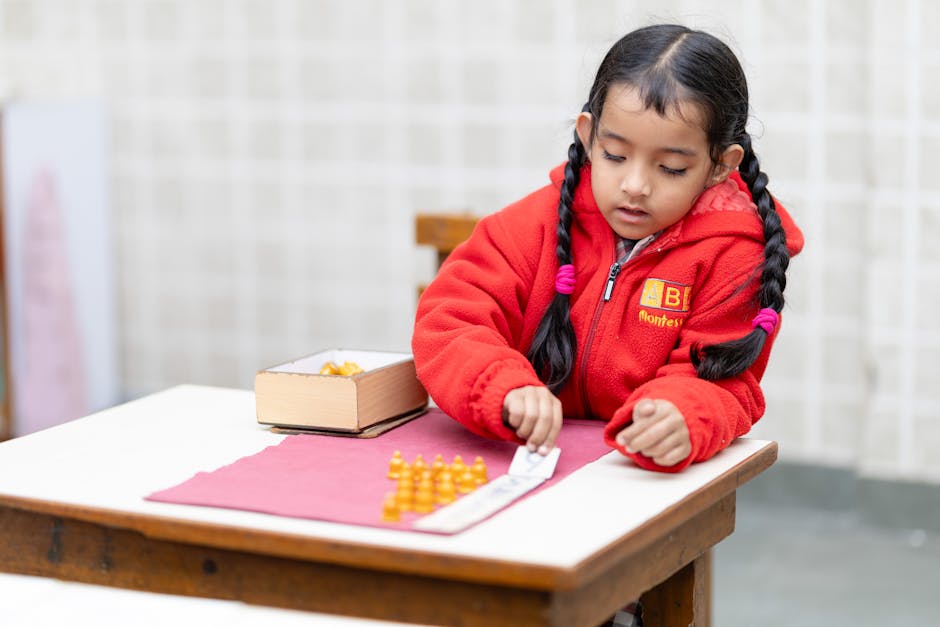Interactive Play Activities
Interactive Play Activities
Blog Article

The journey of cognitive development is a vital aspect of a child's growth, influencing their ability to think, learn, and interact with the world around them. As children grow, they encounter new concepts, challenges, and experiences that shape their cognitive abilities. Various approaches can be employed to enhance this development, including interactive play activities, mindfulness practices, and engaging problem-solving games. Understanding and implementing effective cognitive development techniques can significantly impact a child's mental agility and overall learning experience.
Interactive Play Activities
Play is often considered the primary way through which children learn and explore their environment. Interactive play activities are not only enjoyable but also serve as powerful tools for fostering cognitive skills. Engaging in play-based learning allows children to experiment, problem-solve, and think critically in a safe space.
One effective method for enhancing cognitive development through play is using building blocks. Children can create structures while developing spatial awareness, fine motor skills, and problem-solving abilities. Encourage them to replicate designs or create their own, prompting discussions about balance, symmetry, and stability.
Another excellent interactive activity is role-playing. Whether it's pretending to be a doctor, a teacher, or a chef, role-playing encourages children to think from different perspectives, enhancing their empathy and social skills. Parents and educators can facilitate this by providing props and scenarios, making the experience rich and immersive.
Incorporating music and movement also stimulates cognitive development. Simple activities that involve singing songs, dancing, or using instruments can boost memory and enhance language skills. These activities engage multiple senses, making learning more effective and enjoyable.
Mindfulness and Cognitive Development
Mindfulness practices have gained recognition for their ability to enhance focus, emotional regulation, and memory. Integrating mindfulness techniques into daily routines can significantly benefit cognitive development. By practicing mindfulness, children learn to concentrate better and manage stress, creating a conducive learning environment.
One practical technique is guided imagery, where children are encouraged to visualize peaceful scenes or outcomes. This practice not only calms the mind but also aids concentration and creativity. Parents can guide their children through this process by asking them to close their eyes and imagine a serene landscape, describing the colors, sounds, and feelings associated with it.
Breathing exercises can also be effective in promoting mindfulness. Simple activities, such as taking deep breaths while counting to five, can help children learn to focus and reduce anxiety. These moments of calm can improve their ability to retain information and respond thoughtfully to challenges.
Problem-Solving Games
Engaging children in problem-solving games is another valuable method for enhancing cognitive flexibility and critical thinking skills. These games encourage children to think outside the box and develop strategies for overcoming obstacles.
Puzzles are a classic example of problem-solving activities that stimulate cognitive development. Whether it’s jigsaw puzzles, logic puzzles, or brain teasers, these challenges require children to think critically and develop solutions. To make it more engaging, parents can set a timer and turn it into a friendly competition, encouraging teamwork and communication.
Board games that involve strategy, such as chess or checkers, also promote cognitive skills. These games require planning, foresight, and adaptability, making them excellent tools for enhancing critical thinking. Parents can introduce these games gradually, discussing strategies and encouraging children to articulate their thought processes.
Incorporating technology in moderation can also support cognitive development through interactive games that require problem-solving and critical thinking. Many educational apps are designed to promote these skills while providing an engaging platform for learning.
In conclusion, employing effective cognitive development techniques can help shape a child’s ability to think critically and creatively. By utilizing interactive play activities, mindfulness practices, and problem-solving games, parents and educators can create rich learning environments that foster cognitive growth. For further insights into methods for enhancing cognitive development, consider exploring resources that specialize in early childhood education and development.
For more information on cognitive development techniques and their application, visit Chrysalis Preschool.
Report this page